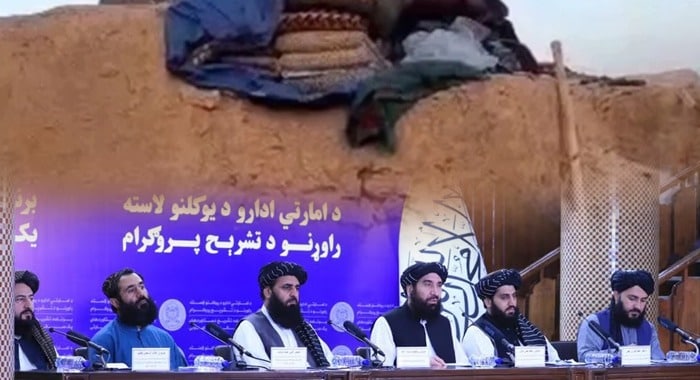As the Taliban expand their control over Afghanistan’s land and resources, a disturbing pattern is emerging: while ordinary citizens are being violently evicted from their homes, the regime is simultaneously handing over millions of acres to Taliban-linked companies under opaque “development” plans.
On July 18, more than 100 families were expelled from their homes in Dawlatyar district of Ghor province in a unilateral land grab carried out by Taliban forces. The evictions were described by locals as violent and forced, with families left without shelter and no access to due legal process.
Just days later, on Monday, Taliban security forces accompanied by ‘Kuchi’ (nomads) forcibly removed residents from Rashk village in Bamiyan’s Punjab district, acting on a Taliban court ruling that awarded land rights to the nomadic group. At least 25 homes were padlocked, household belongings thrown outside, and families forced into homelessness.
According to residents and local sources, the court proceedings were biased and exclusionary, with villagers not allowed to participate or challenge the ruling. Some men had already fled the area, fearing they would be coerced into signing documents to legitimise the dispossession. Appeals were ignored, and complaints fell on deaf ears.
Meanwhile, in Kabul, the Taliban’s Directorate of Emirati Companies announced that regime leader Hibatullah Akhundzada had issued a decree to allocate over one million acres of land to Taliban-affiliated enterprises. The land, according to officials, will be used for “agricultural and commercial development,” though no details were given about where the land lies or whether it had been privately owned.
Critics argue the Taliban’s land policies represent a deliberate and systematic seizure of property, repackaged as state-building. Without an independent judiciary or land dispute resolution mechanism, Afghan citizens have little recourse when their property is seized or reclassified as “Emirati land.”
The Taliban’s Commission for the Prevention and Recovery of Usurped Land claims to have reclaimed 3.9 million acres since its formation, identifying nearly 50 million acres it deems state property. Over 12.7 million acres have now been formally registered under the Taliban’s centralised land ownership framework, a move rights observers say effectively cuts off citizens from ancestral lands and local autonomy.
What the Taliban describe as economic reform, many see as land consolidation under authoritarian control, executed at the cost of vulnerable families, many of whom are now displaced, disenfranchised, and silenced.





